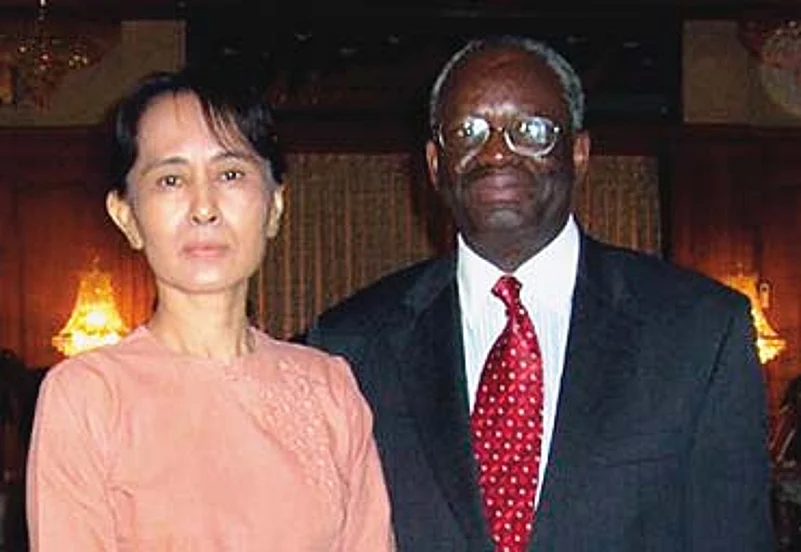Indo-Myanmar trade rose to $650 mn in 2006-07, up from $557.68 mn in '05-06, and from $87 mn in '90-91
India is Myanmar's fourth largest trading partner, its second largest export market after Thailand
***

India bestowed the Nehru Prize on Suu Kyi in 1993 only to find Indian insurgents rounded up by the Burmese military suddenly freed. Slowly and painstakingly, India opened lines to the junta, offered development projects and secured some cooperation in fighting Northeastern insurgents. "Quiet diplomacy helped India secure two out of its three core interests—rights to explore gas and military action against rebels. At the same time, India is allowing large numbers of Burmese people to come across into Mizoram and Manipur at an informal level," said Moloy Dhar, a former joint director in the Intelligence Bureau.
India and Myanmar share a 1,670-km border, and connectivity to India's own Northeast and ASEAN countries through Myanmar is the prize at the end of this constructive engagement. Under India's "Look East Policy" intended to increase trade with Southeast Asia and check Chinese influence, New Delhi is reviving an old historic port at Sittwe on the northern Rakhin coastline and link it by road and river to southern Mizoram through the multi-modal Kaladan project. The final agreement for the $100-million project, to be completed by 2010, will be signed within the next few weeks.
Myanmar also sits on an estimated 300 billion cubic meters of gas reserves, and India would very much like to be at the receiving end. India was shoved out of the running by China earlier this year on a gas contract because Beijing blocked a UN Security Council resolution condemning Myanmar's human rights record. Officials say they can't afford to ignore China's unabashed use of muscle, money and might to secure its goals.
"Our duty as a democracy is to speak out but we issued four miserable sentences," says TV anchor Karan Thapar, who is a personal friend of Aung Suu Kyi. "You shrink as a democracy by your silence. One day the military rule will end and then Aung will be the undisputed leader. Will she forgive us for deserting her in her hour of need?" he asks.
Sanjoy Hazarika of the Centre for North East Studies & Policy Research says while India has supported the democracy movement and allowed exiles to filter in, it is now leaning too much on the other side. "The fact that the government's reaction came days after the Chinese statement and then its first statement called the violence Burma's internal affair was not right. India can't be so coy and defensive. India should call for an international conference on Myanmar and 'outflank' the Chinese if this is what India wants to do. We think we are going to be a big power. A regional power asserts itself and sometimes you do what is right," Hazarika said.
Indian officials, while caustically dismissing the US and EU criticism as being inversely proportional to their distance from Myanmar, are slightly stung by the upbraiding at home. "Wherever you look in India's neighbourhood, there is democratic transition at different stages, and we are engaged with opposition parties. But we can't just do democracy promotion," an official said. And sometimes it means holding your nose as you go about muscling in with non-democratic rivals.





















